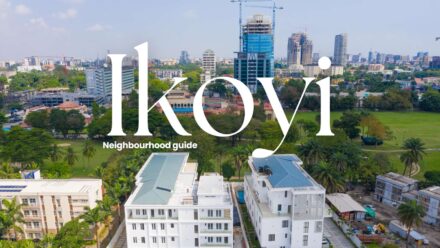If you’ve ever been involved in a property transaction in Nigeria, you’ve likely heard the term Certificate of Occupancy (C of O). It’s a cornerstone of land ownership and one of the most essential documents every property buyer must understand—especially first-time buyers and Nigerians in the diaspora unfamiliar with how property ownership works back home.
But what exactly is a Certificate of Occupancy, and why is it so critical in Nigerian real estate? And how does the Land Use Act of 1978, which governs land ownership in Nigeria, tie into it?
This comprehensive guide explains everything you need to know about the C of O, the underlying Land Use Act provisions, and how to protect yourself as a buyer.
What is a Certificate of Occupancy (C of O)?
A Certificate of Occupancy is an official document issued by the government, serving as legal proof of a person’s right to occupy and use land in Nigeria for a specified period, usually 99 years. It was introduced under the Land Use Act of 1978, which vests all land in each state in the hands of the Governor. Essentially, when you own land in Nigeria, you’re granted a leasehold interest, not outright ownership.
Without a valid C of O, claims to ownership may be legally weak, leaving property owners vulnerable to disputes, revocation, or loss.
Why is the Certificate of Occupancy So Important?
The C of O is pivotal for several reasons:
1. Establishes Legal Ownership
Under Section 9 of the Land Use Act, it’s the primary evidence that you have been granted a statutory right of occupancy by the Governor.
2. Prevents Land Disputes
Without it, ownership claims can be contested or declared invalid.
3. Enables Secure Property Transactions
You need a C of O when selling, leasing, or transferring property. Also, under Section 22, any transfer requires the Governor’s Consent to be legally valid.
4. Supports Loan Applications
Banks typically request a valid C of O when offering loans, as it serves as recognized collateral.
What Properties Require a Certificate of Occupancy?
The Certificate of Occupancy is applicable to various types of properties:
- Land Purchased from the Government: For newly allocated plots, the government issues a C of O directly to the buyer.
- Privately Purchased Land: Land bought from private sellers often requires a C of O to formalize ownership.
- Inherited Land: Even family land may require a C of O to avoid disputes.
- Commercial and Residential Properties: Whether for business or personal use, having a C of O secures your investment.
Who Issues the Certificate of Occupancy?
Under the Land Use Act, all land in a state is vested in the Governor, who acts as the custodian. The governor delegates the issuance of Certificates of Occupancy to the Ministry of Lands and Housing or a similar agency. In the Federal Capital Territory (FCT), this responsibility lies with the Federal Capital Development Authority (FCDA).
The Application Process for a Certificate of Occupancy
Obtaining a Certificate of Occupancy involves several steps:
- Submit an Application: Visit the state’s Ministry of Lands or designated office. Fill out the application form and attach the required documents.
- Site Inspection and Survey: Officials will visit the land to verify its boundaries and ensure there are no encroachments.
- Processing and Payment of Fees: Pay the necessary fees, including survey fees and processing charges.
- Issuance of the Certificate: Once all checks are completed, the C of O is issued.
Required Documents:
- Deed of Assignment.
- Survey Plan.
- Evidence of Land Purchase.
- Passport photographs.
- Tax Clearance Certificate.
Timeline: Processing a C of O can take several months, depending on the state and complexity of the application.
Costs Associated with Obtaining a Certificate of Occupancy
The costs vary across states but typically include:
- Application Fees: Initial filing costs.
- Survey Fees: For mapping and verifying the land.
- Processing Fees: Administrative charges.
- Legal Fees: If you engage a lawyer to assist with the process.
For Nigerians in the diaspora, budgeting for these expenses is essential to avoid surprises.
Common Challenges and Misconception
- Processing Delays: Bureaucratic bottlenecks can slow down the issuance process.
- Confusion with Deed of Assignment: While a Deed of Assignment shows a transfer of ownership, it is not a substitute for a C of O.
- Misunderstanding Ownership: A C of O grants leasehold rights, not outright ownership, as all land ultimately belongs to the government.
What Happens If You Don’t Have a Certificate of Occupancy?
Without a C of O, you face significant risks:
- Legal Vulnerability: Your ownership may be challenged in court.
- Government Revocation: The government can reclaim the land without compensation.
- Limited Financial Opportunities: Banks may refuse to accept the property as collateral.
Renewals, Transfers, and Revocation of Certificates of Occupancy
- Renewals: After the 99-year lease period, the leaseholder must apply for a renewal.
- Transfers: Ownership can be transferred to another party, but the new owner must update the C of O.
- Revocation: The government may revoke a C of O if the land is abandoned, used for illegal purposes, or required for public use.
Frequently Asked Questions (FAQs)
- Can a C of O be forged? Yes, but you can verify its authenticity by conducting a search at the state’s Land Registry.
- Is a C of O required for every property transaction? Not always. For example, properties with an existing C of O may only need a Deed of Assignment for transfer.
- How do I verify the authenticity of a C of O? Conduct a search at the Ministry of Lands or use the services of a trusted legal professional.
Conclusion
The Certificate of Occupancy is a critical document for anyone looking to own or invest in property in Nigeria. Whether you’re based in the country or abroad, understanding the significance of a C of O can save you from legal complications and financial losses.
When dealing with property transactions, always engage professionals such as lawyers or property consultants to ensure due diligence. Protect your investment and secure your future with the right documentation.











[…] Certificate of Occupancy (C of O), is the most recognized property title in Nigeria, issued by the state […]
[…] A C of O provides security to the holder by confirming that the government recognizes their ownership. […]